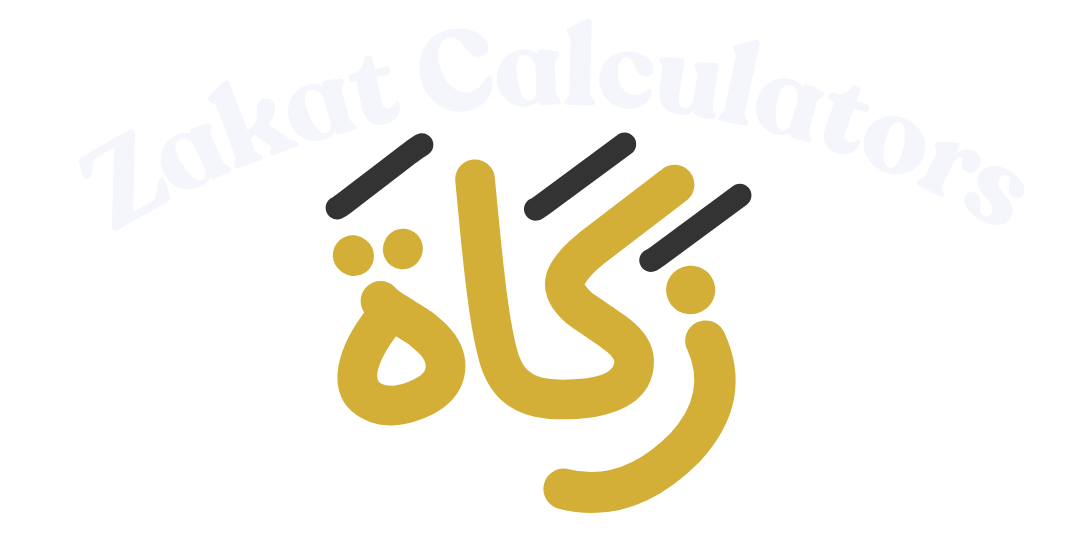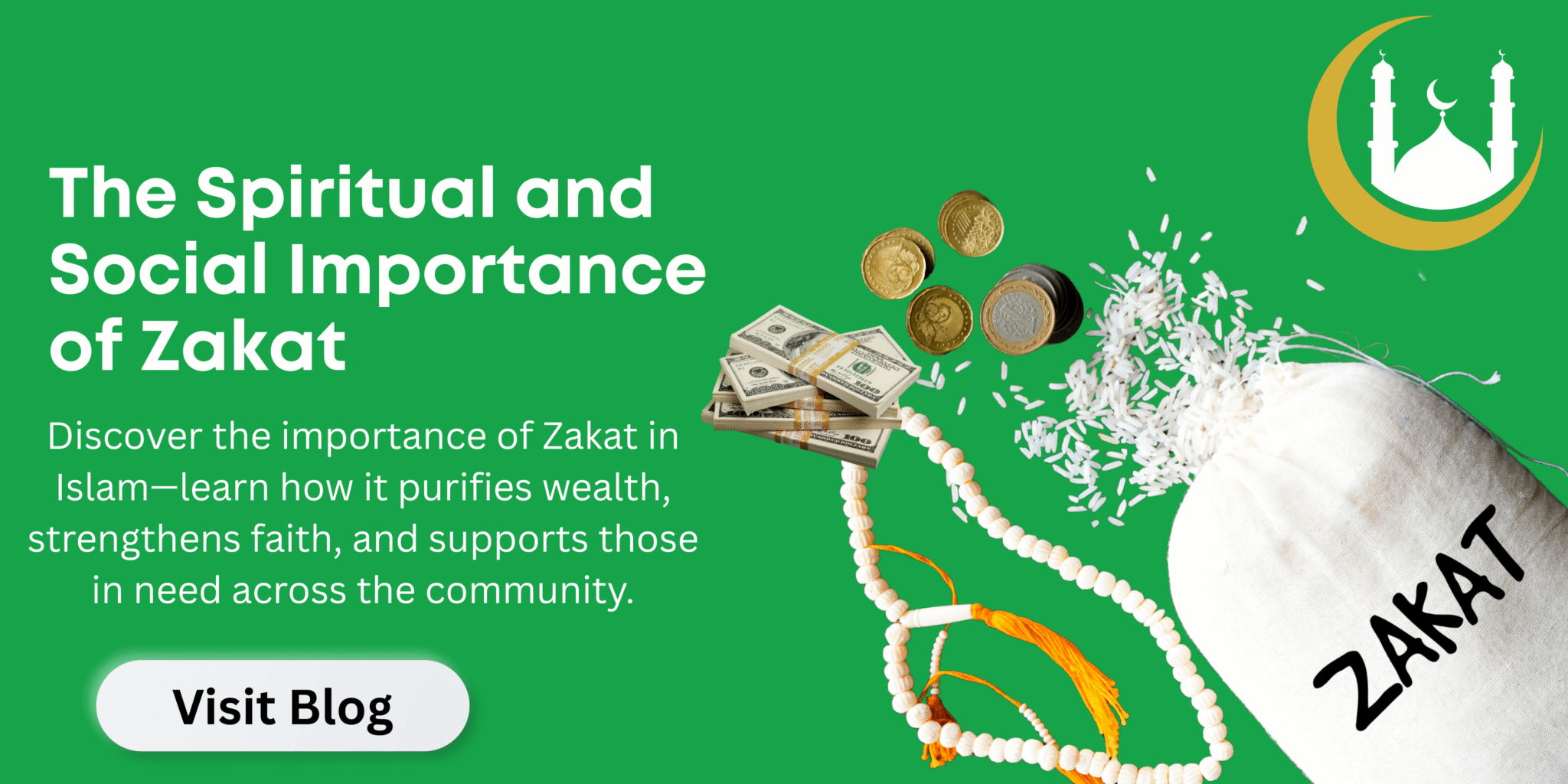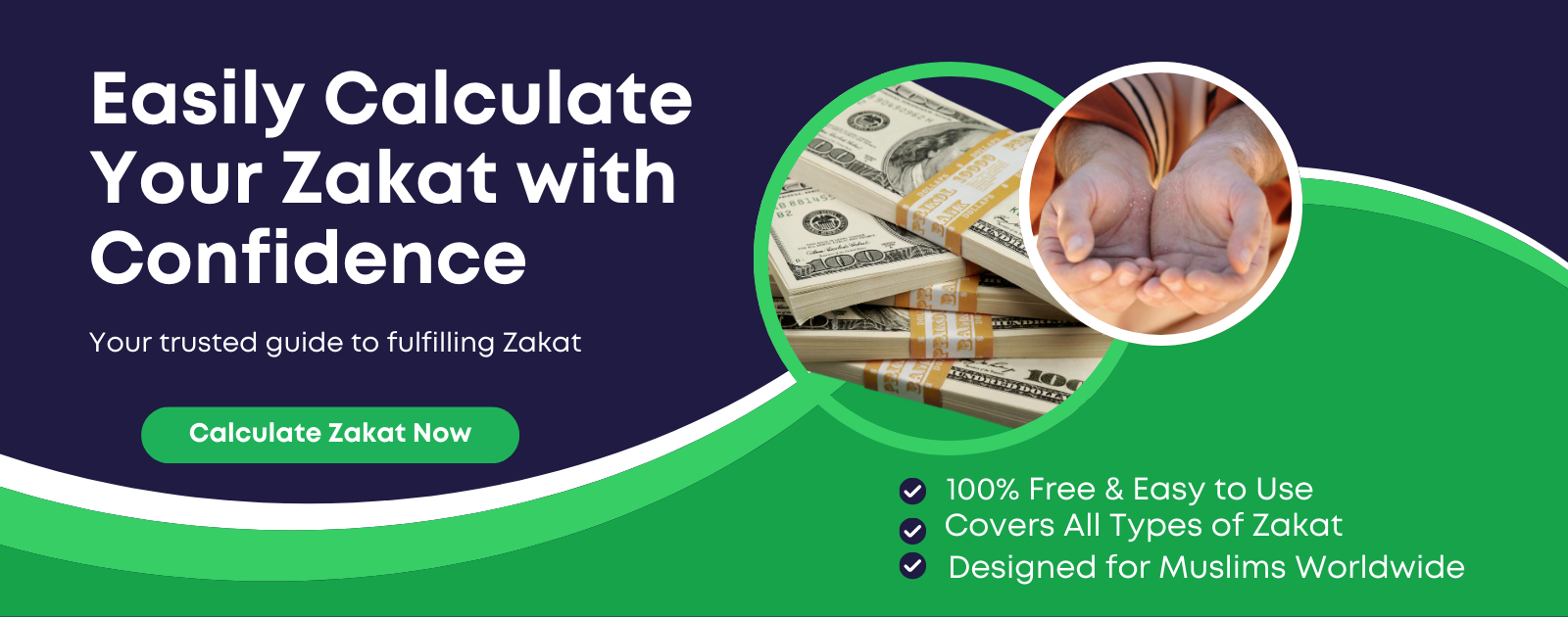

Zakat
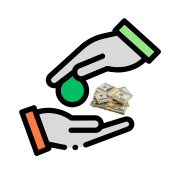
Sadqah

Islamic Finance

Donation

Zakat

Sadqah

Islamic Finance

Blog
Zakat Calculators
Easily calculate zakat on cash, gold, silver, business assets, investments, property, livestock, and agriculture—all in one place.
All In One Zakat Calculators
You can calculate Cash, Gold, Silver, Business Assets, Investment, Property , Livestock and Agricultural Produce Calculate in one place by one click
Zakat = (Total wealth you own for one lunar year – any debts due now) × 0.025
Cash Zakat Calculator
Calculate zakat on your money in hand and bank accounts.
Total Formula: (Cash – Liabilities) × 2.5%
Gold Zakat Calculator
Calculate zakat on your gold jewelry or gold holdings.
Formula: (Gold Value – Nisab) × 2.5%
Silver Zakat Calculator
Easily calculate zakat on your silver jewelry or holdings.
Formula: (Silver Value – Nisab) × 2.5%
Business Assets Calculator
Find zakat on business stock.
Formula: (Assets – Liabilities) × 2.5%
Investment Calculator
Calculate zakat on shares, stocks, or crypto assets
Formula: (Investment Value – Nisab) ×
2.5%
Property Zakat Calculator
Check zakat on rental income or properties for trade
Formula: (Trade Property Value – Nisab) × 2.5%
Livestock Zakat Calculator
Find zakat on cows, sheep, camels, and other livestock
Formula: Based on animal type & quantity (per Islami rulings).
Agricultural Produce Calculator
Calculate zakat on crops and harvest easily
Formula: Produce Value × 5% (with irrigation) or 10% (rain-fed).
About
Zakat Calculators
The Spiritual and Social Importance of Zakat
Discover the importance of Zakat in Islam—learn how it purifies wealth, strengthens faith, and supports those in need across the community.
How It Works
Our zakat calculator is designed to make your obligation simple and accurate. Just follow these four steps:
Islamic Authenticity
Zakat is not just charity — it is an obligation prescribed by Allah. To ensure accuracy and authenticity, our calculator is based on principles found in the Qur’an and Hadith.




Advanced Features for Modern Muslims
Experience the most comprehensive zakat calculation platform with features designed for accuracy and ease.

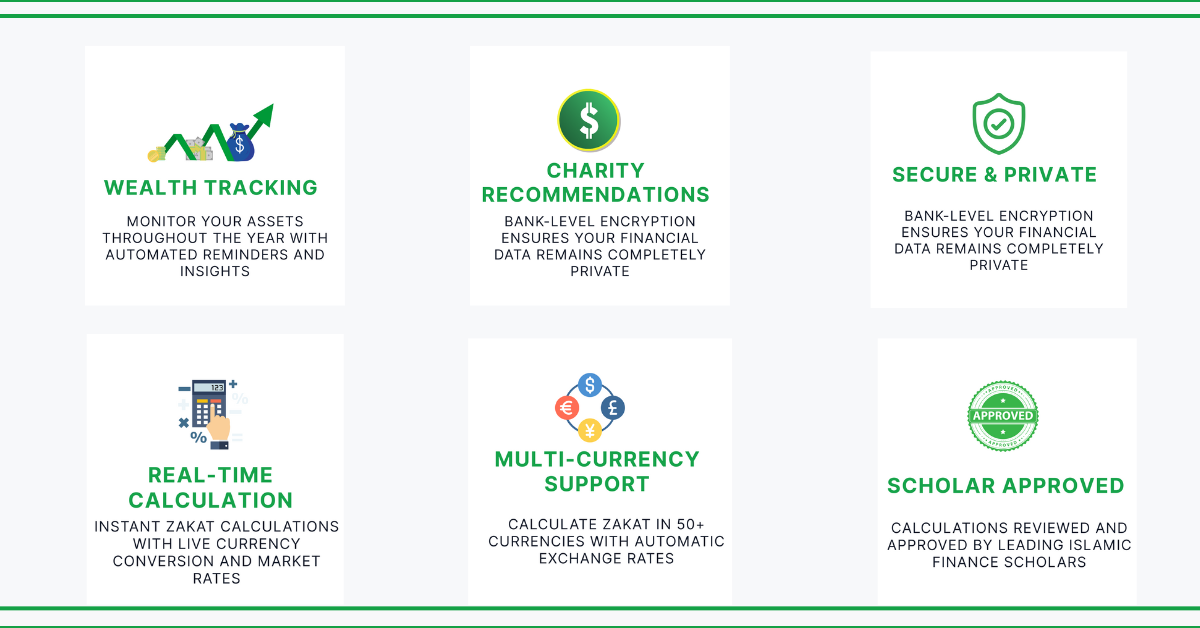
Trusted by Muslims Around the World
See how people calculate Zakat quickly and accurately with our free tools.
Frequently Asked Questions
Find answers to the most common questions about Zakat, Nisab, and eligibility
1. What is Zakat and why is it important in Islam?
Zakat is one of the Five Pillars of Islam and a compulsory form of charity for Muslims who meet the Nisab threshold. It requires giving 2.5% of accumulated wealth (such as cash, gold, business assets, or investments) annually to the eligible poor and needy.
Its importance lies in purifying wealth, reducing inequality, and strengthening social bonds. The Qur’an (9:103) commands: “Take from their wealth a charity by which you purify them and cause them to increase.”
2. How do I calculate Zakat easily?
Zakat is calculated at 2.5% of all eligible wealth that has been held for one lunar year and exceeds the Nisab. Eligible wealth includes cash, savings, gold, silver, business assets, investments, agricultural produce, and trade property.
The simplest way is to use an online zakat calculator like ours, which automatically checks Nisab and gives you the exact payable amount in your preferred currency.
3. What is the Nisab for Zakat in 2025?
The Nisab is the minimum threshold of wealth before Zakat becomes obligatory. It is based on the value of 87.48 grams of gold or 612.36 grams of silver.
As market prices change daily, Nisab in PKR, USD, GBP, and EUR may differ. Many scholars recommend using the silver Nisab because it benefits more people in need.
Example (approx. 2025): If silver price is $1 per gram, Nisab ≈ $612.
4. Do I need to pay Zakat on salary, savings, and property?
Salary: Zakat is not due on monthly salary itself, but if the money is saved and remains in your possession for one lunar year above Nisab, it becomes zakatable.
Savings: All bank savings, cash, and investments are zakatable if above Nisab.
Property: Zakat is due only on trade properties or rental income (not your personal residence).
5. What items are eligible for Zakat?
Items eligible for Zakat include:
Cash, savings, and bank deposits
Gold and silver (jewelry or bullion)
Business goods, trade stock, and merchandise
Investments (shares, stocks, mutual funds, crypto)
Agricultural produce (subject to Ushr/Zakat)
Livestock (camels, cows, goats, sheep)
Property held for resale or rental income
Items not eligible: your personal house, car, furniture, clothing, and daily essentials.
